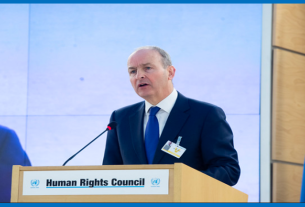If the person who died had insurance, contact their insurance company as soon as possible. Read the general guidance on what to do when someone dies abroad if you’re not sure if they had insurance.
The insurance company should appoint a funeral director in Tunisia and the UK. They may also cover the cost of bringing the person’s body to the UK (repatriation) and help with any medical, legal, interpretation and translation fees.
If there is no insurance cover, the deceased’s next-of-kin will need to hire funeral directors in the UK. They will be responsible for coordinating with the Tunisian undertaker and ensuring payment is guaranteed.
Registering the death
The death must be registered at the local Tunisia registry office (called Municipalité). Your funeral director can normally do this for you.
You will need information and documents about the person who has died, including:
- the medical death certificate
- official identity document (British passport)
- spouse’s details (if applicable)
- marriage certificate (if applicable)
- divorce papers (if applicable)
- information about the deceased’s marital status and the name of their spouse (if applicable)
- identity document of the informant
Getting a death certificate
After registering the death, you will get a death certificate. This process can be completed in one day and must be done within 72 hours of the time of death. You can ask for a French version of the certificate of death for ease of formalities.
Tunisian death certificates do not mention the cause of death. You should ask for at least 3 copies of the death certificate, as you might need them to show to people later.
Post mortems in Tunisia
A post mortem is a medical examination of the body. There might be one in Tunisia if the cause of death is unknown, unnatural, sudden or violent.
Cultural or religious sensitivities may not be taken into account. Small tissue samples and organs may be removed for testing without the family’s permission. You will not automatically be told if this happens.
If organs are removed they will normally be returned before the person’s body is released for burial. In exceptional circumstances body parts may be kept without permission. This might happen if further investigation is needed. The next of kin will be not be informed if this happens.
Post mortem reports are only given to the Police. If you have a lawyer, they can request a copy on your behalf.
Burying the body in Tunisia
You need a local funeral director to arrange a burial in Tunisia. Your funeral director can give you advice.
Cremation is not allowed in Tunisia.
Bringing the body to the UK
Ask your funeral director about options for bringing the person’s body to the UK from Tunisia.
When taking the person’s body to the UK from Tunisia you will need to:
- show the local death certificate
- show the doctor’s certificate as to non-contagion
- get permission to remove the person’s body, issued by police
- show the passport of the person who died
- the undertaker’s statement as to the proper placing of the body in the coffin and the coffin’s acceptance for transport
- a covering statement issued by the Consular Section of the British Embassy in Tunisia explaining the above documents (because they are not in English and may not be readily understandable for the authorities in the UK)
Getting the person’s belongings back
Belongings the person had with them when they died are normally given to you or the Tunisian police.
If you bring the person’s body to the UK, you can ask your local funeral director to collect all the belongings and transport them together.
If they were a Tunisian resident you may not be able to take the belongings as they may be part of their estate. Get legal advice if this happens.
Belongings may be kept as evidence if there is an investigation into the death. This will only be returned when the court case is over.
Finding a local translator
You may need a translator to help you understand local rules or get documents translated. The British Embassy in Tunisia cannot provide translation services or pay for translation costs.
Finding a lawyer in Tunisia
You may need a lawyer to help you understand the Tunisia legal system when someone has died. The British Embassy in Tunisia cannot give you legal advice or pay for legal costs
Telling the UK authorities
Although you do not have to register the death in the UK, when someone dies abroad you still need to tell the UK authorities. Read general guidance on what to do when someone dies abroad to find out what to do.
You can contact the FCDO if you still need advice:



